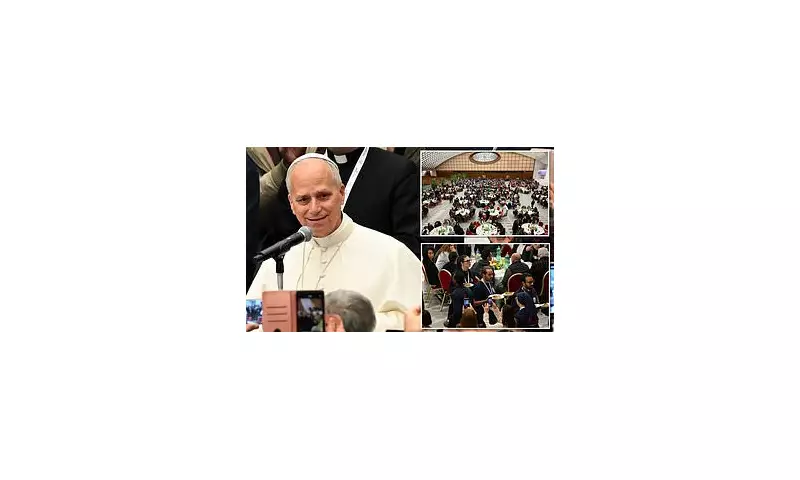
The newly elected Pope Leo XIV has sparked controversy after appearing to give a cold shoulder to a group of 48 transgender women during the Vatican's annual 'lunch for the poor' on Sunday. The Chicago-born pontiff's decision marked a significant departure from the inclusive approach of his predecessor, Pope Francis.
Breaking from Tradition
In a stark contrast to previous years, the transgender women found themselves seated at separate tables throughout Paul VI Hall rather than at the Pope's head table. This seating arrangement represented a clear break from the access they had enjoyed under Pope Francis in both 2023 and 2024, when they were welcomed directly at Francis's own table.
The prominent placement beside the late pontiff had become a powerful symbol of his high-profile outreach to transgender Catholics. Many attendees interpreted the change as an unmistakable snub from the new Pope.
Disappointment and Hope
Alessia Nobile, an Italian transgender author who had twice been welcomed at Pope Francis's table, expressed her disappointment. "That he'd mingle, that he sat close to us, that's a good sign, right?" Nobile said, revealing her hope that Pope Leo's warmth would match his predecessor's.
Nobile managed to hand the new pontiff a letter "on behalf of the trans community" but received only a smile in return before he moved on. Other transgender women never got close enough to speak to him at all during the event, which was attended by more than 1,300 migrants, homeless visitors, disabled guests and low-income families.
Vatican's Response
Vatican organisers have strongly denied any deliberate exclusion. Cardinal Konrad Krajewski, the Vatican's longtime organiser of papal charity events, insisted that no conspiracy existed behind the seating arrangements.
He claimed the head-table seats had been given out "randomly" to parishioners who attended an earlier Mass and noted that the trans women "had arrived late." Krajewski warned against interpreting the seating chart as symbolic, stating: "The church is open to everyone. It's not about Leo meaning to carry on this outreach. They came because they're an integral part of the church, that is all."
The Rev. Andrea Conocchia, the liberal priest who ministers to the Torvaianica trans community, acknowledged that "we weren't able to meet the pope" but noted they were seated "very, very close to the pope." He described the atmosphere as "fraternal" and "joyful."
Continuity and Change
Despite the apparent snub, some transgender attendees remained hopeful about the new pontiff's approach. Marcella Di Marco, 52, admitted sensing "some disappointment" but believed "the door Francis opened had not been slammed shut."
"Pope Leo is different from Francis, but he knows we have hard lives and I believe his heart is open to us," Di Marco added.
The lunch was intended to serve as a continuation of the late pontiff's high-profile outreach to marginalised LGBTQ+ Catholics. Many of the transgender women, predominantly Latin Americans from Torvaianica just outside Rome, had been personally greeted by Francis at papal audiences in previous years.
Pope Leo, long viewed as more cautious and institutionally minded than the charismatic Francis, has treaded lightly around LGBTQ+ issues since his election. While upholding Francis's theological framework, he has not continued his predecessor's deeply personal rapport with transgender visitors.
Francis had held dozens of papal audiences with trans women, often bringing them to the front row, greeting them by name and offering blessings that resonated far beyond Rome. Pope Leo's approach appears more reserved, despite his echo of Francis's crucial point that LGBTQ+ Catholics are "a son or daughter of God" and therefore welcome.
The Catholic Church maintains its position defining homosexuality as "intrinsically disordered" and opposes same-sex marriage, yet Francis had approved brief blessings for same-sex couples and clarified that transgender people may serve as godparents and receive baptism.





